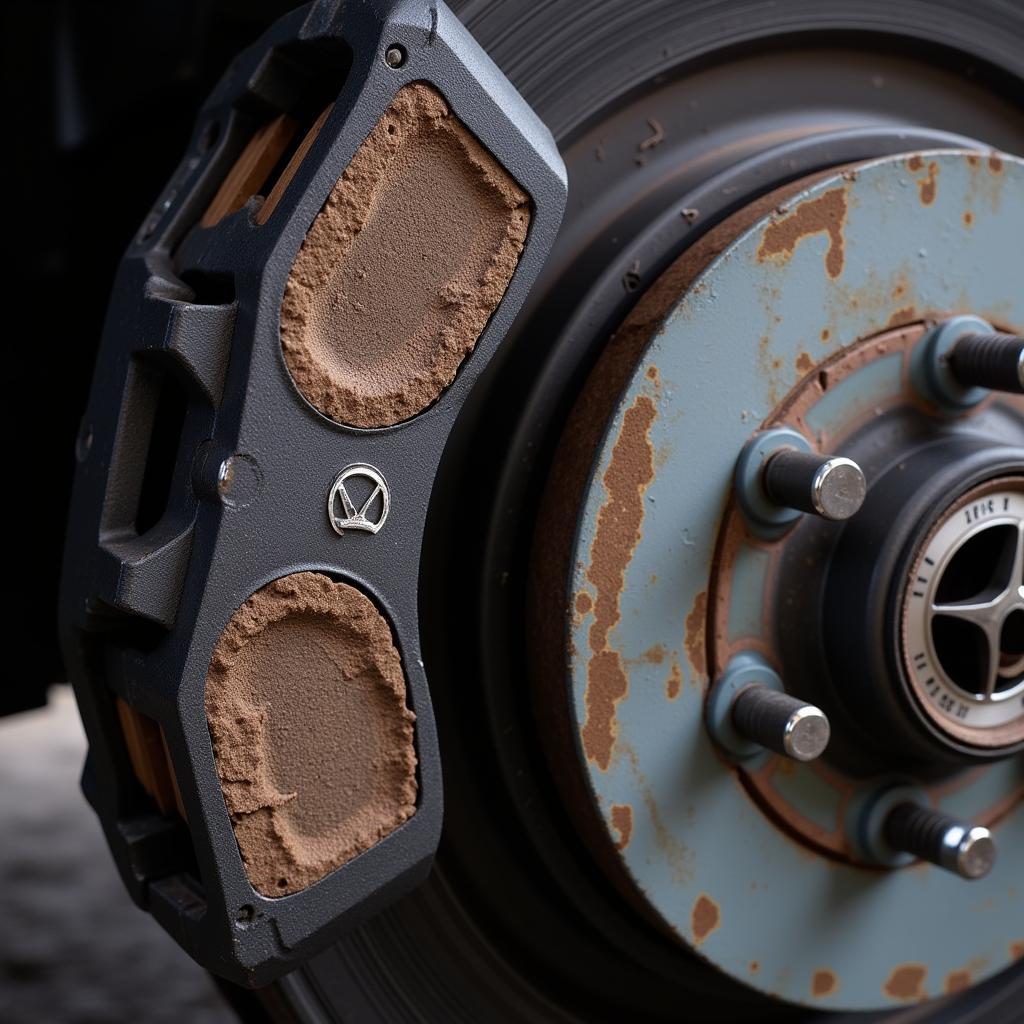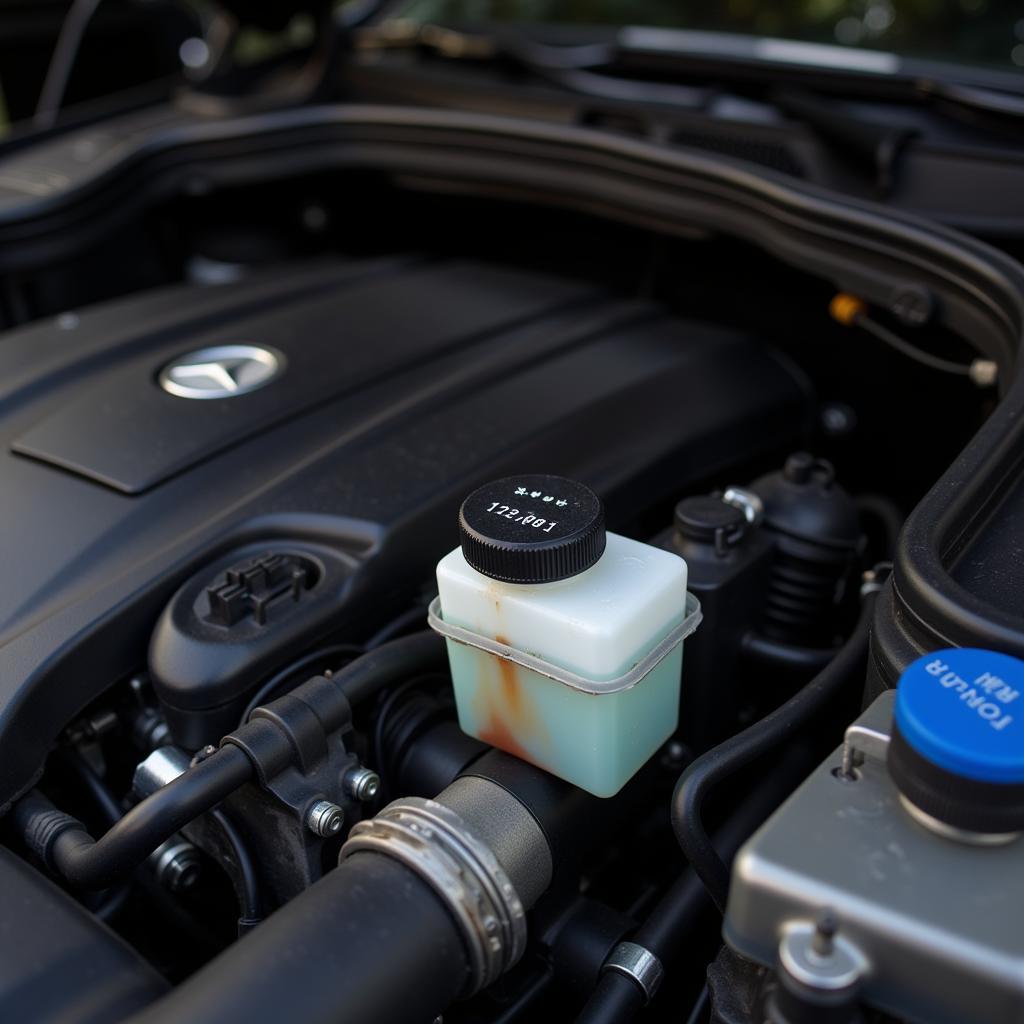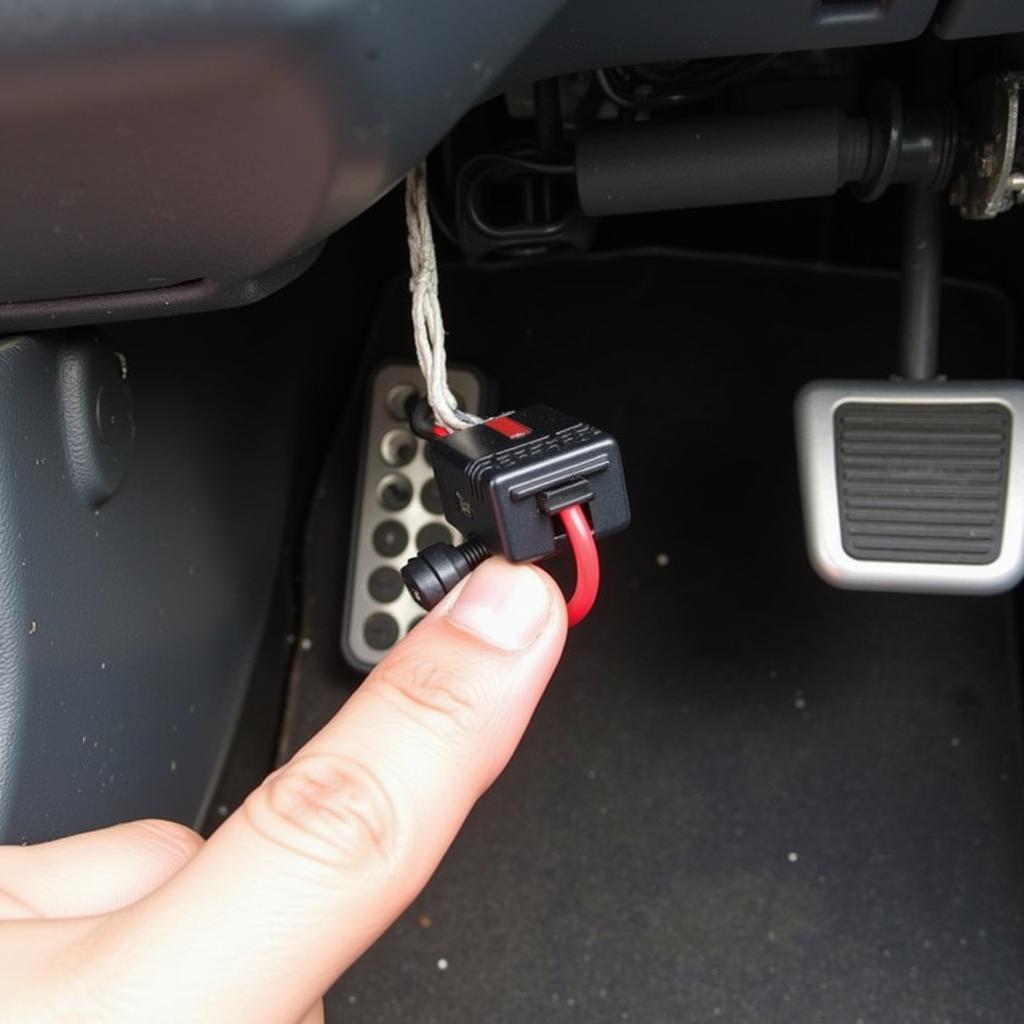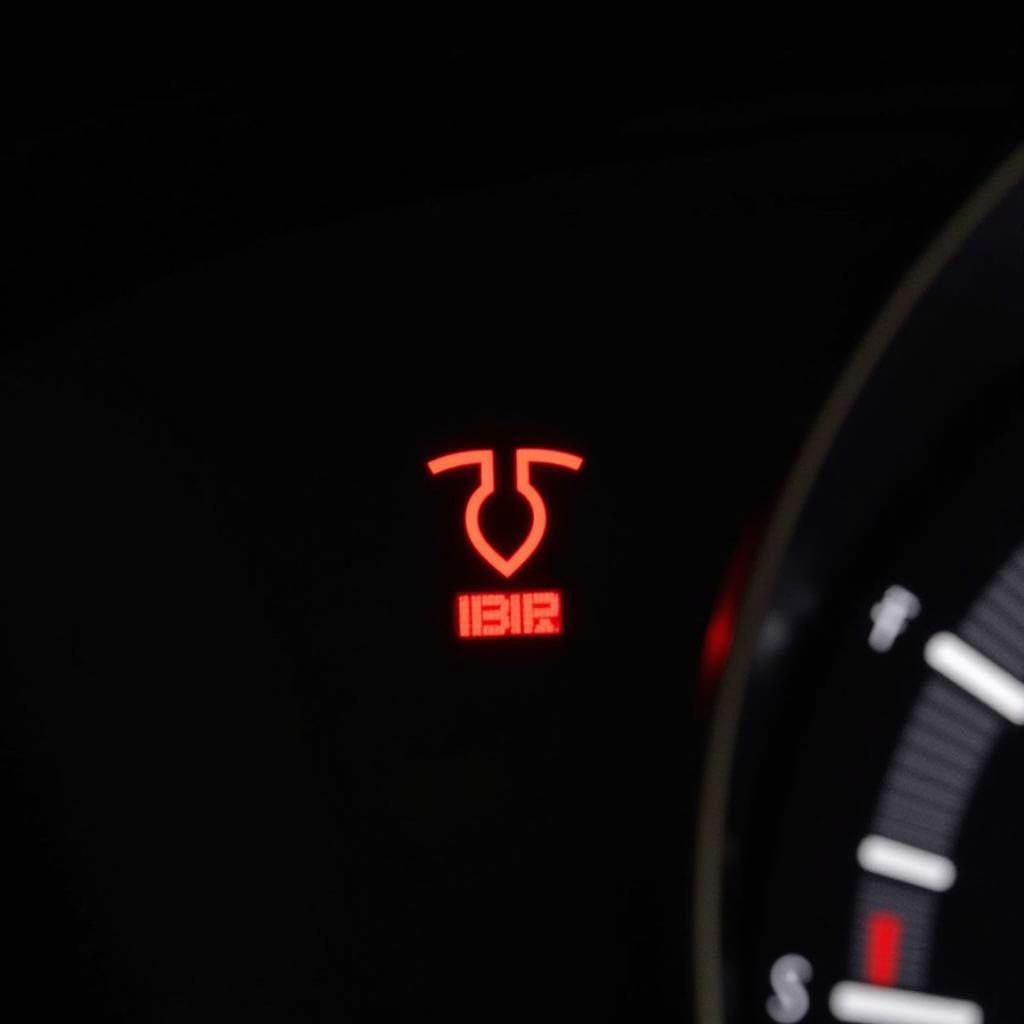Seeing a brake light warning on your Mercedes dashboard can be unsettling. This light typically means there’s an issue with your braking system that requires attention. Ignoring it could compromise your safety and lead to more costly repairs down the line. This article will guide you through the common causes of a Mercedes brake light warning and provide possible solutions to get you back on the road safely.
Understanding Your Mercedes Brake System
Before we dive into the specifics of the brake light warning, it’s helpful to have a basic understanding of how your Mercedes brake system works. Here’s a simplified explanation:
- Hydraulic System: When you press the brake pedal, it activates a hydraulic system that amplifies the force you apply. This force is transmitted through brake fluid to the brakes at each wheel.
- Brake Pads and Rotors: The brake pads are forced against the brake rotors (discs) when you brake. This creates friction, slowing down the rotation of the wheels and bringing your vehicle to a stop.
- Sensors and Warning Lights: Your Mercedes is equipped with various sensors that monitor the health of your brake system. When a potential issue is detected, the brake light warning on your dashboard will illuminate.
Common Causes of a Mercedes Brake Light Warning
A Mercedes brake light warning can be triggered by several issues, ranging in severity. Here are some of the most frequent culprits:
1. Worn Brake Pads
 Worn Brake Pads on a Mercedes
Worn Brake Pads on a Mercedes
This is the most common reason for the brake light to come on. Your Mercedes brake pads are designed to wear down over time with use. When they reach a certain thickness, a sensor will trigger the warning light, indicating it’s time for a replacement.
What to do: If you suspect worn brake pads, it’s crucial to have them inspected by a qualified mechanic as soon as possible.
2. Low Brake Fluid Level
 Low Brake Fluid in a Mercedes
Low Brake Fluid in a Mercedes
Brake fluid is essential for transmitting the hydraulic pressure needed to apply your brakes. If the fluid level is low, it could indicate a leak in the system, which can significantly compromise your braking ability.
What to do: Check your brake fluid level. If it’s low, adding more fluid won’t solve the underlying problem. Have your brake system inspected by a professional to identify and repair any leaks.
3. Faulty Brake Light Switch
 Mercedes Brake Light Switch
Mercedes Brake Light Switch
The brake light switch is a small component that activates your brake lights when you press the brake pedal. If it malfunctions, it can cause the brake light warning to illuminate, even if there’s nothing wrong with the braking system itself.
What to do: Diagnosing a faulty brake light switch often requires electrical testing. It’s best to have this checked by a qualified mechanic.
4. ABS Sensor Issues
Your Mercedes is equipped with an Anti-lock Braking System (ABS), which prevents your wheels from locking up during hard braking. ABS sensors monitor wheel speed, and if one or more sensors malfunction, it can trigger the brake light warning.
What to do: ABS sensor issues require specialized diagnostic equipment. Seek assistance from a qualified mechanic or a Mercedes dealership.
5. Issues with the Master Cylinder
The master cylinder is a vital component of your brake system. It’s responsible for converting the force from your foot on the brake pedal into the hydraulic pressure that operates the brakes. If the master cylinder fails, it can lead to a loss of braking power.
What to do: Like other brake system components, diagnosing and repairing a master cylinder issue is best left to professionals.
Why is my Mercedes brake warning always on?
If your Mercedes brake warning light stays on constantly, it’s a clear sign that something is wrong with your braking system. Here are a few additional reasons why this might happen:
- Parking Brake Engaged: It seems obvious, but sometimes the simplest explanation is the correct one. Make sure your parking brake is fully disengaged.
- Faulty Brake Sensor: As mentioned earlier, a malfunctioning brake pad wear sensor or ABS sensor can cause the light to stay on.
- Electrical Issues: Problems with the wiring harness or a blown fuse related to the braking system can also lead to a persistent warning light.
Mercedes Sprinter Brake Pads Warning Light
mercedes sprinter brake pads warning light
If you own a Mercedes Sprinter van, you might encounter a brake pads warning light specifically. This light functions similarly to a regular brake light warning, indicating that your brake pads are wearing thin and need to be replaced. It’s crucial not to ignore this warning, as worn brake pads can significantly reduce your braking efficiency.
Brake Warning Light Mercedes E500 Always On
brake warning light mercedes e500 always on
In a Mercedes E500, a constantly illuminated brake warning light could point to issues specific to this model, such as a faulty brake pressure sensor or problems with the SBC (Sensotronic Brake Control) system. Diagnosing these problems requires specialized tools and expertise.
Mercedes Sprinter Brake Distribution Warning Light
mercedes sprinter brake distribution warning light
Another warning light you might come across in your Mercedes Sprinter is the brake distribution warning light. This light typically indicates a problem with the vehicle’s Electronic Brakeforce Distribution (EBD) system, which optimizes braking force to each wheel for improved stability.
Mercedes Benz Brake Wear Warning Light
mercedes benz brake wear warning light
The brake wear warning light in a Mercedes-Benz generally serves the same purpose as the brake pad warning light—it alerts you to excessively worn brake pads. Timely attention to this warning is crucial to prevent further damage to the brake system.
Why is my Mercedes brake warning always on?
why is my mercedes brake warning always on
If your Mercedes brake warning light refuses to turn off, it’s vital to address the underlying issue promptly. Persistent warning lights often indicate a more serious problem that requires professional diagnosis and repair.
Don’t Ignore a Brake Light Warning
A Mercedes brake light warning should never be ignored. Addressing the issue early can prevent more serious problems and expensive repairs later.
Here’s what to remember:
- Safety First: If you experience any unusual braking behavior, such as a soft or spongy brake pedal, pulling to one side, or grinding noises, stop driving immediately and have your car towed to a mechanic.
- Professional Diagnosis: While some brake system issues might seem straightforward, it’s always best to have your car diagnosed by a qualified mechanic, especially with a sophisticated vehicle like a Mercedes. They have the knowledge, experience, and specialized tools to accurately pinpoint the problem.
“Regular brake inspections and timely maintenance are essential for ensuring optimal braking performance and safety,” advises master Mercedes technician, Hans Mueller. “Don’t wait for a warning light to act—proactive care is key.”
Taking care of your Mercedes brake system is not just about avoiding costly repairs; it’s about ensuring your safety and the safety of others on the road.


